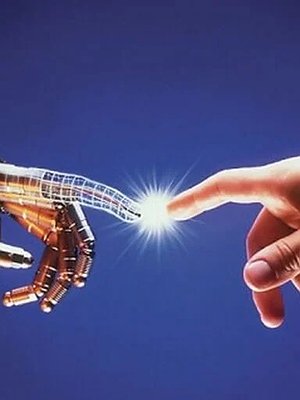
Author: ЛЕВАИ ИВЕТТ | LEVAI IVETT
The Evolution of VISION: The New WorlD
Allow me to say something about myself in few words…
My name is Ivett Levai, and I am an optometry student in Budapest, Hungary. I have always loved science and medicine and grateful to have the opportunity to participate as a returning competitor in this high-quality international competition.
I think it is important to deal with the future, since we are the ones who can make it better. In medicine, all areas are primary, but ophthalmology is especially important to me. Today's digital world does not have a good effect on our vision, so it is essential to deal with modern technologies that can reduce the number of new and existing eye problems. My work is a science-fiction story in which you can read future solutions as far as ophthalmology is concerned.
The Evolution of Vision: The New World
In the year 2100, the field of ophthalmology had undergone a transformation beyond anyone's wildest dreams. What was once a world of eyeglasses and contact lenses has been replaced by advanced medical treatments and futuristic technology.
Dr. Sophia Olsen stood in her state-of-the-art ophthalmology clinic, overlooking a bustling metropolis. The skyline was decorated with holographic advertisements and self-driving cars drove silently through the streets. Dr. Olsen was a pioneer in the field of ophthalmology, dedicated to pushing the boundaries of what was possible.
One of her most remarkable discoveries was the development of "Nanovisio" a modern technique that used nanorobots to repair and cure the human eye. These microscopic robots could enter the eye painlessly, repairing damaged retinas, correcting refractive errors, and even stimulating the growth of new photoreceptor cells.
On a sunny morning, Ava, a young woman in her twenties, walked into Dr. Sophia Olsen's clinic. Ava had been blind since birth, and her dream was to experience sight for the first time. Ava underwent the “Nanovisio” procedure, and in a few of hours, her world changed forever. As she opened her eyes, she gasped in wonder as the vibrant colors and shapes of the world unfolded before her.
Tears welled up in Ava's eyes as she gazed at the beauty around her. As soon as she left the clinic, saw the leaves on the trees, the smiles on people's faces, and the endless shades of blue in the sky. It was a moment she had longed for her entire life, and it was now a reality.
Nanovisio was just the beginning. Dr. Olsen also developed the "BioLens," a bionic contact lens with micro sensors. These lenses not only corrected vision but also provided a heads-up display of information. Wearers could access the internet, see GPS directions, and even receive real-time translations of foreign languages right before their eyes.
But the innovations didn't stop there. Dr. Sophia Olsen's team had created the "OptoDream", a device that could record and replay your dreams. By connecting it to the visual cortex, they could extract and store the images and experiences you saw while asleep. People could now share their dreams with others, reliving moments of wonder.
As for eye exams, they were a thing of the past. The "OculoScan" is a device that utilized quantum entanglement to instantly assess a person's eye health from a distance. It was quick, non-invasive, and could detect any potential problems long before they became problematic.
The world of ophthalmology in 2100 has expanded beyond simply restoring and enhancing vision. It had become a realm of possibilities that extended far beyond the limitations of the human eye. Dr. Olsen's work has opened doors to experiences and opportunities that were once considered science fiction.
Ava's journey was a proof to the power of innovation and human determination. She was no longer confined by the darkness that had defined her life for so long. With tears of joy in her newly opened eyes, she looked toward a future filled with endless possibilities, where every day was a new adventure in the colorful and beautiful world she had always dreamed of.
In this vision of the future, scientific advancements have led to extraordinary breakthroughs in ophthalmology, where the restoration of vision is not just a medical achievement but also a deeply emotional and life-changing experience. The eyes of tomorrow hold the key to a world filled with wonder and boundless hope.
While writing this work, a question arose in my mind: What other boundaries of human experience could be unlocked through the fusion of science and human imagination? In a world where the boundaries of possibility were constantly expanding, the journey of ophthalmology in 2100 left us wondering about the limitless potential of science to enrich our lives, inspire our dreams, and transform our perception of reality. What other remarkable transformations might await us as we continue to explore the ever-expanding human experience?